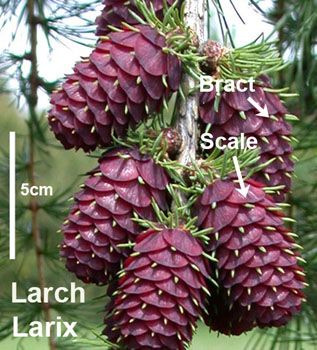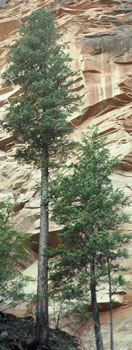
Yew is the common name for evergreen conifers, genus Taxus, of the yew family (Taxaceae). Yews are unusual conifers in that seeds are not borne in cones but occur singly and are enclosed by a red, fleshy, berrylike structure (aril). Pollen cones and seeds usually occur on different plants. Pollination occurs in spring and seeds mature in the fall. The flat, needlelike leaves are 2-3 cm long. There are about 10 species of yew, all in the Northern Hemisphere; 2 in Canada. Canada yew or ground hemlock (T. canadensis) is a low-spreading shrub that grows from Manitoba eastward. Western yew (T. brevifolia) is a shrub or tree in moist areas of southern and western BC.
The hard, reddish wood is prized for wood carving and making archery bows, but yew has minor commercial importance in Canada. English and Japanese yew are popular introduced ornamentals. The leaves, bark and seeds are toxic, however, an extract, taxol, from the bark and leaves is an important drug used for treating certain types of cancer. Taxus species were facing harvesting pressures until this chemical was synthesized in the laboratory in the early 1990s.

 Share on Facebook
Share on Facebook Share on X
Share on X Share by Email
Share by Email Share on Google Classroom
Share on Google Classroom


